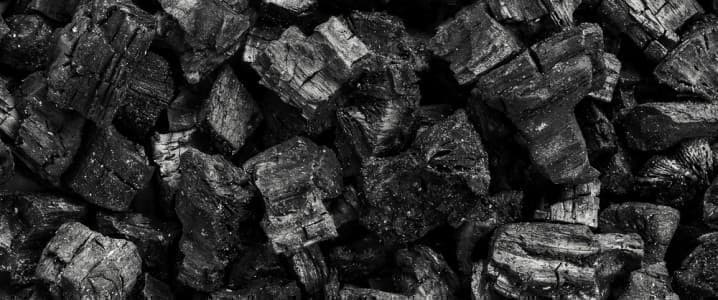Things may be looking up for Canadian oil, but improving on something as dismal as the condition of our northern neighbors’ oil sector doesn’t necessarily mean they’ll be going gangbusters--it could just mean that they’ll be eking out another year with a modicum less of hardship. Wall Street may be feeling bullish about Canadian oil, but Alberta, the province that the Canadian oil sands call home, is hedging its bets and looking toward another fossil fuel as its possible road to salvation. And no, the answer isn’t green energy or the ever-more popular ESG (Environmental, Social, and Corporate Governance) investment trend. In fact, Alberta is headed in the opposite direction, looking to the past for their future. Alberta is betting on, of all things, a “coal rush.”
The province, which depends on fossil fuel extraction to power its economy--and, to a considerable extent, the entire Canadian economy--already has eight coal mines currently operating to extract the region’s more than 91 billion tonnes of mineable coal. But that number might be about to nearly double--an unusual occurrence in a world that’s increasingly moving away from coal mining at a brisk clip. And, ironically, until now Canada has been a more than willing member of the movement to phase out coal, a dirty fuel that is a particularly egregious contributor to global greenhouse gas emissions. As recently as 2015, the Albertan government had pledged to phase out coal-fired electricity altogether by 2030, which was, amazingly, even three years earlier than the Canadian government made the same commitment as part of their cooperation with meeting the goals and benchmarks set by the Paris climate accord. And the very same Canada that’s poised for a coal renaissance launched the Powering Past Coal Alliance along with the United Kingdom at the 2017 UN Climate Change Conference.
And now, after all Canada has done to place itself at the helm of clean energy leaders around the globe, Alberta is quietly on track to bring back coal. After 44 years of a restrictive coal mining policy designed to protect the drinking water of millions of Albertan residents, the limits have been lifted under a new conservative government eager to ramp up coal production in spite of the province and the nation’s anti-coal commitments. The province is now looking at “at least six new or expanded open-pit coal mines built up and down the eastern slopes of the Rocky Mountains, mostly by Australian companies,” The Guardian reported this week. “Together, these projects could industrialize as much as 1,000 sq km of forests, waterways, and grasslands.”
Related: Goldman Turns Bullish On Oil: Sees $65 Brent In 2021
How is Alberta planning to make coal, the most demonized fossil fuel which is finally going out of fashion across the board, from the most developed countries to the most impoverished, profitable? Well, it actually shouldn’t be too hard. While the bottom has fallen out of the market for the kind of coal used in power plants, coking coal (also known as metallurgical coal) is still in high demand for its integral role in the steelmaking process. Much of this demand comes from China, which produces about half of the world’s steel and which will likely keep buying lots and lots of coke as its economy continues to recover post-COVID. While coking coal is more promising economically, however, it’s just as damaging to the environment. Steelmaking alone accounts for nearly 5% of the entire world's industrial carbon emissions.
The move back to coal has been an understandably controversial one in Alberta. “It’s all pretty shocking,” Katie Morrison, conservation director of the southern Alberta chapter of the Canadian Parks and Wilderness Society told The Guardian. “The government is saying this is going to be the next economic boon for the province, but it’s just another boom-and-bust economy. And there’s a good chance [the mines] will go bust before they ever clean up their mess, and the public will be left with the clean-up costs.” Albertan constituents were not consulted in the repeal of the 1976 coal mining restrictions, and it’s likely that there will be plenty of public outcry concerning the at least six new coal mines on the province’s docket. If the mines are constructed as planned, it may be a temporary boon for Canada’s economy, but it will present an interesting PR complication for a country that has gone so far to brand itself as anti-coal on the world’s stage.
By Haley Zaremba for Oilprice.com
More Top Reads From Oilprice.com:
- Mexico Is Quietly Pushing Out Foreign Oil Investors
- Oil Jumps On Crude Inventory Draw
- Goldman Turns Bullish On Oil: Sees $65 Brent In 2021

















